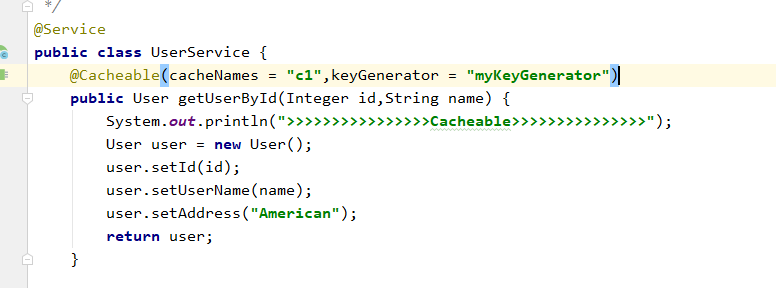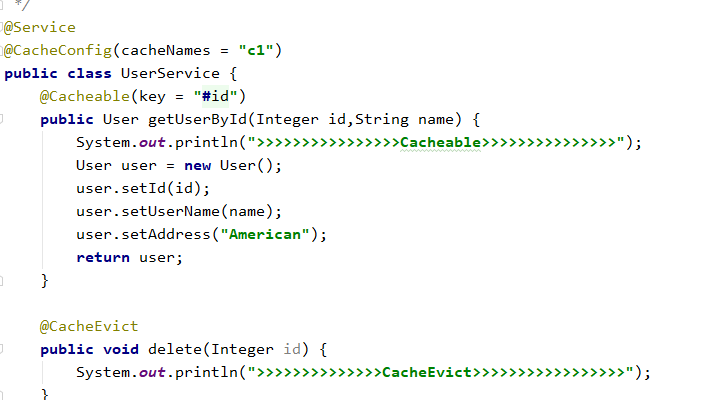注:springcache并非springboot特有的功能
一、创建项目并导入依赖
<dependency>
<groupId>org.springframework.bootgroupId>
<artifactId>spring-boot-starter-cacheartifactId>
dependency>
<dependency>
<groupId>org.springframework.bootgroupId>
<artifactId>spring-boot-starter-data-redisartifactId>
dependency>
<dependency>
<groupId>org.springframework.bootgroupId>
<artifactId>spring-boot-starter-securityartifactId>
dependency>
<dependency>
<groupId>org.springframework.bootgroupId>
<artifactId>spring-boot-starter-webartifactId>
dependency>
<dependency>
Springboot2.1.5之后版本远程连接redis时必须要加入spring-security依赖
二、相关配置和代码
Application.properites
spring.redis.host=192.168.21.134
spring.redis.port=6379
spring.redis.database=0
spring.redis.password=520hufei520
spring.cache.cache-names=c1
spring.cache.cache-names=c1,c2…. 表示启动时创建缓存名称,用逗号分隔表示多个缓存名
创建pojo、service用来测试
注:使用缓存需要在springboot启动类加上
@EnableCaching以用来开启缓存
当方法只有一个参数时,默认缓存的key是id
当方法有两个参数时,就需要指定key
#id |
属性名 |
#methodName |
函数名 |
#method.name |
同上 |
#caches |
使用缓存集合中作为key,例子#caches[0] |
#args |
使用参数名作为key,使用方法同上 |
#target |
当前调用对象作为key |
#target.class |
当前作用对象的class |
还可以自己定义key
这也是一种写法
@CacheEvict
删除的同步缓存
@CachePut
修改时的同步缓存
在每个方法都定义一个缓存名似乎也很麻烦,可以其中定义在类上







